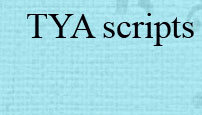



ARTS ATLANTA
Georgia Shakespeare finds bird of paradise in Andersen’s “Emperor and the Nightingale”
By Andrew Alexander
July 18, 2012
Georgia Shakespeare’s new children’s show, “The Emperor and the Nightingale,” on stage through August 3, is an adaptation of the classic Hans Christian Andersen tale. There’s nothing ironic, condescending or overly noisy in the production, which is a wonderful rarity in contemporary children’s entertainment. The show retains the earnestness and quiet poetry of the Andersen story, even as it adds a lot of humor and music.
This production shifts the emphasis from an emperor whose life is saved by the song of a nightingale to Mei (Claire Rigsby), a meek village girl who can communicate with the bird (Ann Marie Gideon). She decides to bring the nightingale as a gift to the emperor in the hope of restoring his health. The nightingale supplants the music master and his choir in the emperor’s affections. In revenge, the music master hatches a plan to build a mechanical bird, which, unlike the nightingale, never gets tired, doesn’t mind captivity and always responds to commands.
As with many of Andersen’s tales, the narrative is simple, even stripped down. A lot is added to the central story in this adaptation, and the narrative can feel a bit discursive at times. The central drama between the emperor and the nightingale takes a long time to appear on stage, and it’s surprising how little time the two characters spend together once we get to them. Fortunately, what we are shown in the meantime is charming. We get a glimpse into the daily life of Mei’s village as it prepares for the celebration of the New Year, and we watch a disastrous rehearsal of the comically frustrated music master and the Imperial Chorus, all of which are played by actor Caleb Clark operating five marionettes.
Moments of audience participation — learning to say “Happy New Year” in Chinese or how to bow to show respect, singing to call the nightingale on stage and a dragon that wends its way through the aisles during a New Year’s celebration — are nicely integrated into the show. When the music master complains in song that no court musician has ever been replaced by a bird before, we subtly get a condensed history of the Chinese dynasties in the process. Visual elements such as rear projections of traditional Chinese paintings and scrolls are atmospheric without ever feeling intrusive or distracting.
Andersen’s stories, in spite of their sense of surface clarity and directness, are often surprisingly complex in their implications. Georgia Shakespeare’s production is funny and engaging. Best of all, it allows Andersen’s allegory about the bittersweet balancing act between freedom and control to fully emerge on stage.








